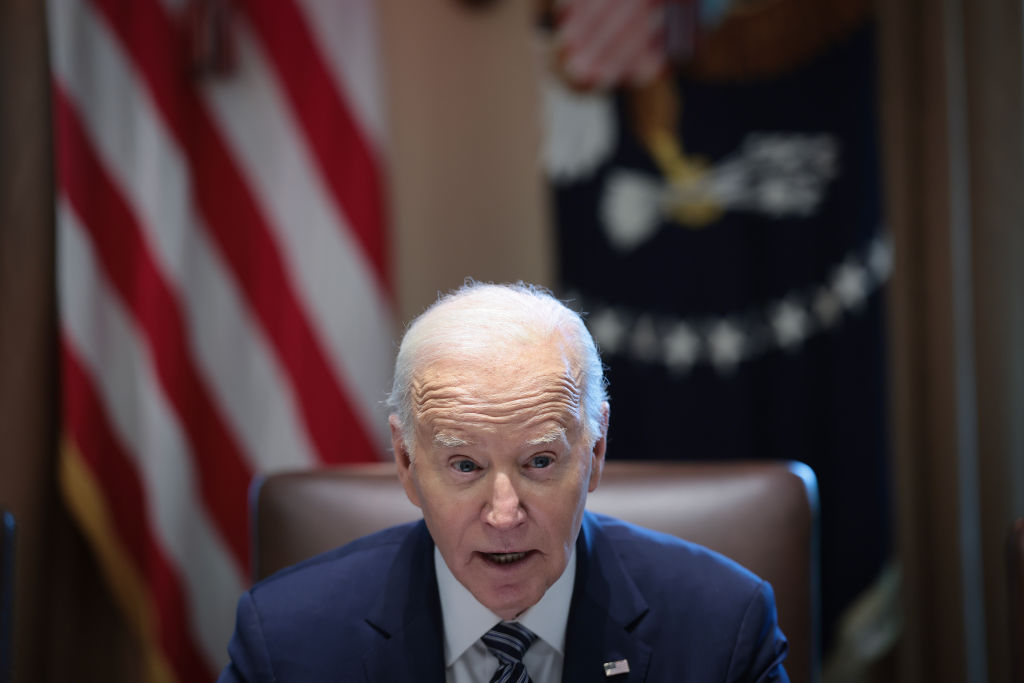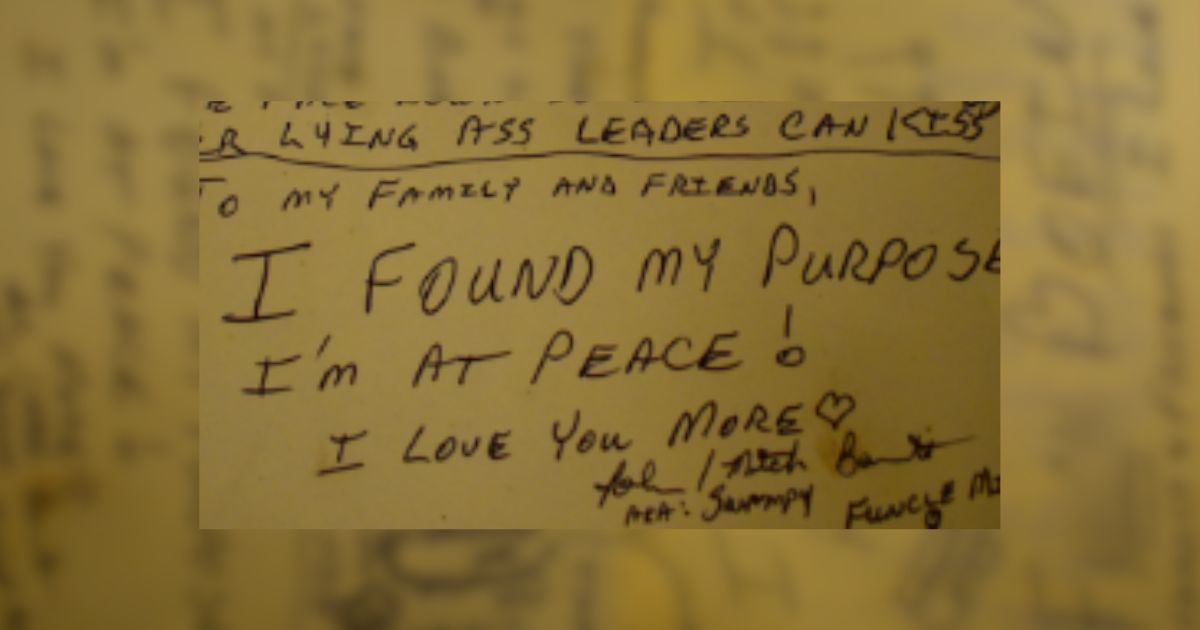John Kirby declines to state that nuclear war is more perilous than climate change, asserting that it is a scientific fact.
White House National Security Council spokesperson John Kirby refuses to prioritize nuclear war over climate change
In a recent interview on Fox News with Martha MacCallum, John Kirby, the spokesperson for the White House National Security Council, avoided acknowledging that nuclear war poses a greater danger to humanity than climate change.
This conversation took place amidst ongoing conflicts between Russia and Ukraine in Europe, as well as a surge in Middle East violence due to terrorist attacks by Iranian-backed Islamic groups against Israel.
MacCallum questioned Kirby about President Joe Biden’s previous statements on the subject. Biden had claimed that the only threat more terrifying than nuclear war is global warming exceeding 1.5 degrees within the next 10 to 20 years.
MacCallum asked Kirby if the president still stands by this statement, considering the nuclear tensions in the regions currently under conflict. Kirby responded affirmatively, emphasizing that climate change is indeed an existential threat capable of gradually wiping out all human life on Earth. However, he also stressed the importance of not neglecting national security interests in dangerous parts of the world.
Kirby later reiterated that the president firmly believes climate change poses an existential threat to all life on the planet, emphasizing that this is a scientifically supported fact. Nevertheless, he emphasized the need to address other challenges faced by the country and its allies worldwide, without turning a blind eye to the broad range of national security commitments.
CLICK HERE TO GET THE DAILY WIRE APP
WATCH:
Martha MacCallum asks John Kirby if Joe Biden still stands by his comments that “The only existential threat humanity faces even more frightening than a nuclear war is global warming going above 1.5 degrees in the next 20 — 10 years.”
Kirby: ”Absolutely he does. Climate change… pic.twitter.com/USdA0fGbMm
— Steve Guest (@SteveGuest) October 9, 2023
TRANSCRIPT:
MARTHA MACCALLUM: Given that the United States is now involved in wars that are taking place in Europe and also in the Middle East, I want to play this soundbite for you that is just last month in Vietnam, and ask you if this still holds for the President. Watch.
JOE BIDEN: The only existential threat humanity faces even more frightening than a nuclear war is global warming going above 1.5 degrees in the next 20 — 10 years.
MACCALLUM: Given all the nuclear players in these two areas where we are now engaged on, does the President stand by that comment?
JOHN KIRBY: Absolutely he does. Climate change is an existential threat. It could, it actually threatens, is capable wiping out all human life on earth over time. I mean, that’s, I don’t know how more existential you can get to that. But that doesn’t mean that we walk away from our obligations, our national security interests in very dangerous parts of the world.
MACCALLUM: But John, he said it was more frightening than a nuclear war. It’s more frightening than a nuclear war in this moment?
KIRBY: The President believes wholeheartedly that climate change is an existential threat to all the human life on the planet. That’s just science. That’s a fact, Martha. But it doesn’t mean that we turn our back on the other challenges facing this country and our allies and partners around the world. We’ve got broad national security commitments, literally globally. And we’ve got to mind all of them at the same time. You mentioned two of them. Obviously, Israel right now, certainly Ukraine over the last almost two years now. We are big enough and powerful enough and effective enough nation to be able to look after all these disparate national security threats and one of them absolutely is climate change.
In the face of escalating tensions and conflicts worldwide, how can a balanced approach be achieved that addresses both immediate threats, like nuclear war, and long-term challenges like climate change
“White House National Security Council spokesperson, John Kirby, refuses to prioritize nuclear war over climate change” – A Critical Examination
In a recent interview on Fox News with Martha MacCallum, John Kirby, the spokesperson for the White House National Security Council, faced scrutiny for his refusal to acknowledge that nuclear war poses a greater danger to humanity than climate change. This conversation took place amidst ongoing conflicts between Russia and Ukraine in Europe, as well as a surge in Middle East violence due to terrorist attacks by Iranian-backed Islamic groups against Israel.
During the interview, MacCallum questioned Kirby about President Joe Biden’s previous statements on the subject. Biden had claimed that the only threat more terrifying than nuclear war is global warming exceeding 1.5 degrees within the next 10 to 20 years. MacCallum sought clarification on whether the president still stands by this statement, considering the escalating nuclear tensions in the regions currently under conflict.
In response, Kirby affirmed that President Biden continues to recognize climate change as an existential threat capable of gradually wiping out all human life on Earth. He emphasized that this perspective is supported by scientific evidence. However, he also stressed the importance of not neglecting national security interests in dangerous parts of the world.
Kirby’s remarks shed light on the administration’s stance on the issue. While they firmly believe in addressing climate change as a critical global challenge, they also acknowledge the need to prioritize national security concerns in active conflict regions. This balanced approach reflects a commitment to dealing with multiple priorities effectively.
It is crucial to acknowledge the gravity of both nuclear war and climate change as threats to humanity. Nuclear weapons have the potential to cause immeasurable destruction and loss of life within minutes. The consequences of a nuclear conflict cannot be overstated, as it would alter the geopolitical landscape and have long-lasting global repercussions.
On the other hand, climate change presents a different kind of threat. Its impacts are gradual but far-reaching, affecting ecosystems, economies, and human lives across the globe. Rising sea levels, extreme weather events, and resource scarcity are among the complex challenges associated with climate change. These issues demand urgent global attention and concerted action to mitigate and adapt to the changing climate.
At a time when tensions and conflicts are escalating in various parts of the world, it is essential to strike a balance between addressing immediate threats and long-term challenges. The complex nature of global security demands a comprehensive approach that considers a range of interconnected issues.
While some may argue that nuclear war poses an immediate and catastrophic risk that should take precedence over climate change, it is crucial to recognize that both issues are shared challenges that require global cooperation. The world cannot afford to neglect one at the expense of the other.
Kirby’s refusal to prioritize nuclear war over climate change does not undermine the severity of the former. It is an acknowledgment of the need for a multifaceted and nuanced approach to addressing global security threats. The White House’s commitment to combating climate change should not be misconstrued as disregarding other pressing concerns.
As the world grapples with these complex issues, it is essential to have open and informed discussions. Careful consideration of national security interests, scientific evidence, and the potential consequences of various threats should guide decision-making. Only through comprehensive and collaborative efforts can we effectively address the challenges that threaten our planet and humanity.
" Conservative News Daily does not always share or support the views and opinions expressed here; they are just those of the writer."





